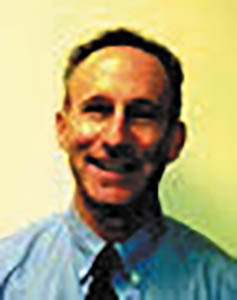
Bereishit 6:9
When Paul Jacobowitz thought of Newark, he thought of the largest city in New Jersey, located at the mouth of the Passaic River as it flows into Newark Bay. Population: 277,000. Home to Newark Liberty International Airport, the New Jersey Performing Arts Center and the New Jersey Devils.
But for the next 12 hours, Paul would be in Newark*, Ohio, located at a fork in the Licking River, in Licking County, Ohio, just 33 miles from Columbus. Population: 47,000. Home to the Newark Earthworks and the National Heisey Glass Museum.
His flight out of Columbus had been canceled, so he grabbed a rental car and drove to Newark, where he knew there was a minyan for Maariv at 9:00, according to GoDaven.com. There was a Days Inn in Newark, so he could crash there overnight. Paul had missed the 8 o’clock minyan in Columbus, so this was his best shot. It was a bit of a schlep, but it was his yahrzeit for his father, and Paul didn’t want to miss saying Kaddish. Being a traveling salesman, moments like this were all too common. It was just another day on the job.
The synagogue in Newark, Congregation Sons of Israel, was a big, old structure. White brick. Stained glass. Big cupola. Paul put the origins of the building in the early 1950s. They just don’t make them like that anymore.
The front door of the shul was unlocked, and Paul walked in. The main sanctuary was dark as night, but Paul could see a light down the hallway, though he heard not a sound. His watch read 8:58. Was he the first? Would there be a minyan at all?
When he reached the light source, Paul found around 15 men sitting in the old chapel. A classic. Lacquered wood paneling under walls covered with faded bronze memorial plaques in every direction and on every surface. A drop ceiling with water-stained panels from storms long ago.
A few men nodded as he walked in but none spoke.
“Good evening,” Paul said. “Does the minyan start at 9?”
Most of the men nodded. One whispered “yes.” But no one asked who Paul was. Where was he from? What brought him to the middle of nowhere? Was he lost? Did he wander in from a traveling circus? Witness protection? Nothing.
A man donned a tallit and began the service. Everyone responded to “Barchu,” and the Maariv davening began.
Paul was puzzled. This was perhaps the rudest group of Jews he had ever encountered in his life. Weren’t out-of-towners supposed to be hospitable? That had been his experience until now. Even in his small shul in Elizabeth—not the world’s friendliest kehillah—someone would have come over and greeted him or at least asked who he was. Especially since he was almost definitely the only stranger in the room!
Shemoneh Esrei finished, they said Aleinu, and Paul recited his Kaddish. Other than responding to his prayer, the room was silent. A few people smiled politely at him, but still no greeting was offered.
Paul thought of that week’s parsha, Noach. The text described Noach as tzadik b’dorotav, a righteous man in his generation. This must be what the Torah meant. Compared to these guys, he was a tzadik. Because even a little kindness would make him righteous compared to these losers.
The service ended, and everyone got up to leave. The minute they were out in the hallway, a man approached him with his hand extended.
“Murray Stern. And you are?”
One by one they each came over and introduced themselves. They asked his details. They played Jewish geography. (Harry Potashnick was friends with his cousin Irv from the old country!) Invitations for dinner were proffered. Michael Nussbaum offered him a bed for the night. Turns out, this was a seriously heimish group of guys.
“Can I ask you a question?” Paul asked a bit sheepishly.
“Anything,” Murray responded.
“You’re such a warm, friendly group. Why did no one greet me when I was at the minyan for Maariv?”
“Oh, that,” Harry said. “We have an ironclad no-talking policy in the sanctuary. Nothing but davening. Our rabbi suggested it, and we’ve grown to like it over the years.”
“Wow. Impressive.”
“Well, I’m sorry if it put you off at all. We really try to make visitors feel welcome.”
“And so you have,” Paul said.
And so, Paul went home with Murray Stern for dinner, although he could just as easily have gone to the houses of Harry, Sid, Barry, Judah, Jeremy, Tomer, Manny or George. And the roast was delicious. That Patty Stern is some kind of cook.
And as he drove back to the Days Inn, Paul realized that he totally misjudged the members of Sons of Israel of Newark, Ohio. Truly, they were the tzadikim, and he, who judged them prematurely, was the non-righteous one.
Truly this “tzadik in his generation” concept was a difficult one to master.
* The first European-American settlers arrived in Newark, Ohio, in 1802, led by Gen. William C. Schenck. He named the new village after his New Jersey hometown.
By Larry Stiefel











